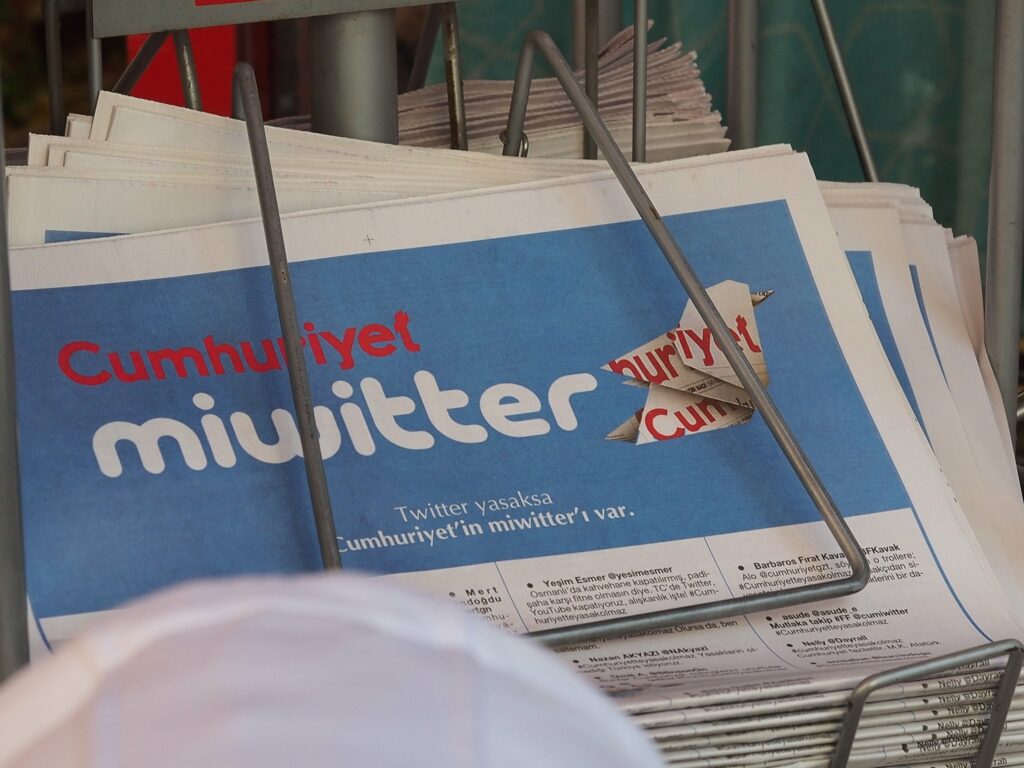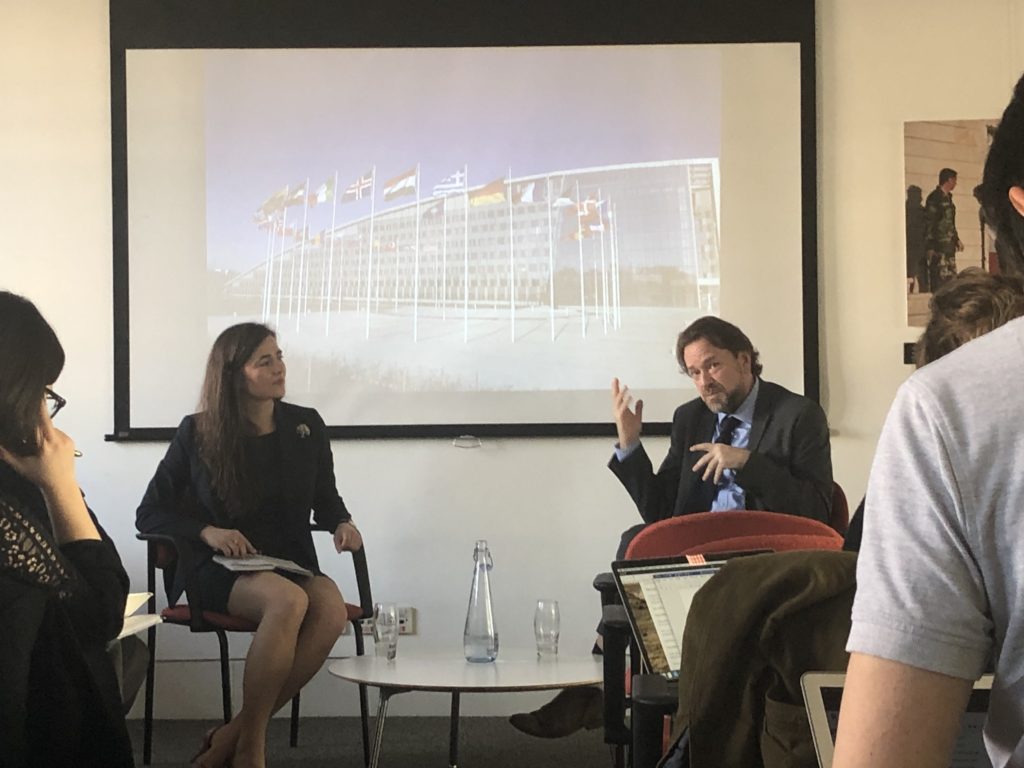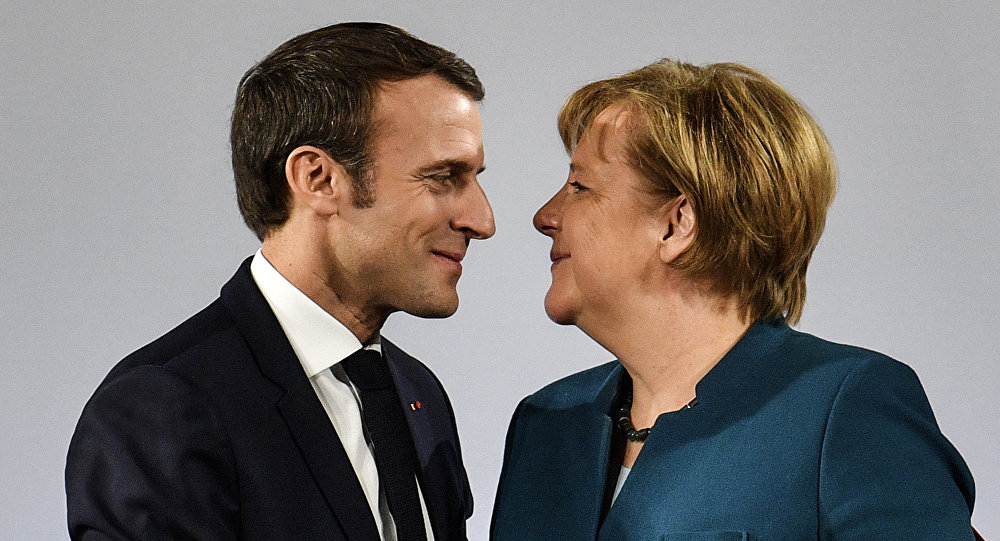
When it comes to strategic messaging, Turkey has been a glutton for punishment in recent years by seemingly fuelling crises as much as trying to spin them. In 2017, the Turkish government announced it would purchase Russia’s S400 missile defence system, which caused significant tension with the US and other NATO members. Tensions with Greece and Cyprus following Turkey’s gas exploration in the East Mediterranean have led to a ‘historic low point’ in relations between Turkey and the European Union.
At first glance the antagonising of supranational organisations to which Turkey is (NATO) or aspires to be (EU) a member seems counter-intuitive. But this overlooks the fact that the EU and US are no longer the target audience for their strategic communications. President Recep Tayyip Erdogan is looking to position Turkey as a ‘model for the Muslim world’. This article will demonstrate how Turkey is reaching out to Muslims in the Middle East, Africa, the Balkans, and Central Asia, combining soft and hard power to form their strategic narrative.[i]
Media and the arts illuminate Turkey’s focus and success in pan-Islamic messaging. Turkish television dramas (dizi) have had a particularly powerful effect in Pakistan. Dizi have seen a global rise in popularity recently: between 2004 and 2017, their export value grew from $10,000 to $350 million. Turkish dramas have seen significant investment from hedge funds in the last few years, and the Ministry of Culture and Tourism has launched cash incentives for film productions in Turkey, which points to a clear understanding at a government level of their power to influence audiences abroad. The investment has paid off - Turkish is now the most watched non-English language in the world. 55 million people in Pakistan watched the finale of the Turkish drama Forbidden Love, and Pakistan makes up 25% of the global audience on YouTube for Resurrection Ertugrul, a series about a Turkic warrior who was the father of the founder of the Ottoman Empire. Audiences watch Ertugrul battle a variety of enemies – Christian crusaders and Byzantines being recurring characters.[ii] Erdogan has said of the show ‘until the lions start writing their own stories, the hunters will always be the heroes’[iii] – a reverse engineering of the idea that history is written by the victors. Whoever writes (or broadcasts) history, is by default, the victor.
This classic storytelling trope of goodies and baddies, with the Christians as the baddies, was inadvertently reinforced by the West’s reaction to the new Turkish law reinstating the Haghia Sophia as a mosque. This should not have come as a surprise to Western commentators, as Erdogan had already declared this to be his intention, yet emotive reactions to the ruling emerged from the Greek press, the Pope, and France’s Foreign Affairs minister, Jean-Yves Le Drian, among others. These expressions were disproportionate to UNESCO’s own muted response (after all, there are plenty of other UNESCO Heritage Sites that are also mosques). Combined, they expressed a perceived offence against Christianity, rather than to the cultural value of the Haghia Sophia, and this in turn had had the effect of reinforcing Erdogan’s strategic narrative (also expressed in Resurrection Ertugrul) of a religious and ideological dichotomy between Christian Europe and the Muslim ‘East’, placing the Haghia Sophia and Turkey at the centre of that ideological (and geographical) battle.
The Gulf region was the largest international consumer of Turkish dizi – until 2017, when the Saudi crown prince Mohammed bin Salman pulled all dizi from MBC Group, the Middle East’s largest media conglomerate – a significant blow to Turkey’s cultural exports. [iv] But far from a banana republic, Turkey’s cultural exports are diverse and competitive - this is well-demonstrated by Turkey’s appeal for ‘halal tourism’. In 2017, Turkey became ‘the world’s third most popular destination for halal travellers’,[v] and dominates the all-inclusive beach holiday sector. Recent reports suggest that the Gulf states may be seeking to normalise relations once more - perhaps willing to overlook Turkey’s assertive behaviour in order to cement the coalition against Iran.
Turkey faces significant competition for influence against Russia and China in the Balkans.[vi] This region used to comprise some of the key heartlands of the Ottoman Empire, and remained important right up to the early Republic of Turkey. In the first parliaments of the Republic, more than 50% of MPs in the National Assembly came from the Balkans.[vii] While the popularity of dizi is an important factor in Turkish influence in the region, investment in schools and supporting migration to Turkey from the Balkans are policies that have resonated even more powerfully. ‘Ordinary Balkan people…realised there was a leader in Turkey who could hear their voices’.[viii] During the Nagorno-Karabakh war, in which Turkey supported Azerbaijan, the President of Serbia said he was considering buying Turkish-made armed drones – a sign that Turkish soft power has reaped hard power rewards.
The Nagorno-Karabakh war has also been a key turning point in Turkish influence in Central Asia. Michael Tanchum’s analysis points out that countries like Azerbaijan, Kazakhstan, Uzbekistan, Kyrgyzstan and Turkmenistan, already inclined towards Turkey by their common Turkic language, now also share a trade corridor thanks to Azerbaijan’s victory. To celebrate the Azerbaijani recapture of Shusha, Turkey announced that it would host its version of Eurovision, Turkvision, in the historic city. This soft power signal was reinforced by various defence agreements with Uzbekistan and Kazakhstan.
Turkish influence in Africa is also growing, particularly in Sudan. Turkish aid to Sudan exceeds that given by the United Nations,[ix] and 2017 Turkey was granted part of the former Ottoman port of Suakin, in order to rebuild it as a tourist destination as well as a possible military port. This would support Turkey’s $50 million military training base in Somalia, as well as their current military presence in Libya.
Turning to the domestic front, Turkey’s internal policies reinforce its message to other Muslim nations. Turkey has shown itself to be a safe haven for Muslims the world over, taking in 3.6 million Syrian refugees as well as thousands of Uighur refugees. The ruling Justice and Development Party (AKP) has allocated up to $14 million to Islamic schools and youth organisations between 2017 and 2018, with the aim of creating a new generation of religiously grounded Turkish youth.[x] The budget of the Diyanet, Turkey’s religious authority that oversees the country’s 85,000 mosques, has quadrupled during President Erdogan’s tenure.[xi]
This strategy is so much more than neo-Ottomanism. It is an exercise in influence, not empire. Strategic communications is a holistic study, and all these communicative acts weave together to form Turkey’s clear narrative, a narrative that is ostensibly effective with its target audience in the Muslim world.
[i] Roselle, Miskimmon and O’Loughlin use strategic narratives as a tool to understand and measure the impact of soft power strategy. Soft power resources may be designed or structured to fit an existing or developing narrative, which helps to explain a state’s actions according to a communicative structure. Roselle, Laura, Alister Miskimmon, and Ben O’Loughlin. “Strategic Narrative: A New Means to Understand Soft Power.” Media, War & Conflict 7, no. 1 (April 2014): 70–84. https://doi.org/10.1177/1750635213516696.
[ii] Bhutto, Fatima. New Kings of the World: Dispatches from Bollywood, Dizi, and K-Pop. Columbia Global Reports: New York [2017], p139.
[iii] Ibid.
[iv] Izzet Pinto, founder of dizi distribution company Global Agency, estimated a loss of $500 million from the MBC decision – but this would affect the overall business only by about 15%, due to additional uptake of dizi in Latin America. Bhutto, Fatima. New Kings of the World: Dispatches from Bollywood, Dizi, and K-Pop. Columbia Global Reports: New York [2017], p158.
[v] Smith, Hannah Lucinda. Erdogan Rising. William Collins: London [2019], pp74-5.
[vi] Erdi Ozturk, Ahmet. “Ahmet Erdi Ozturk on Turkey’s cultural, political and religious footprint in the Balkans”. Turkey Book Talk #139 [Podcast], 13th April 2021. See also Aydintasbas, Asli. “From Myth to Reality: How to Understand Turkey’s role in the Western Balkans”. European Council on Foreign Relations, Policy Brief, 13th March 2019. https://ecfr.eu/publication/from_myth_to_reality_how_to_understand_turkeys_role_in_the_western_balkans/
[vii] Erdi Ozturk, Ahmet. “Ahmet Erdi Ozturk on Turkey’s cultural, political and religious footprint in the Balkans”. Turkey Book Talk #139 [Podcast], 13th April 2021. See also Zurcher, Erik-Jan. Turkey: A Modern History. Bloosmbury: I.B. Tauris. 2017.
[viii] Erdi Ozturk, Ahmet. “Ahmet Erdi Ozturk on Turkey’s cultural, political and religious footprint in the Balkans”. Turkey Book Talk #139 [Podcast], 13th April 2021.
[ix] Bhutto, Fatima. New Kings of the World: Dispatches from Bollywood, Dizi, and K-Pop. Columbia Global Reports: New York [2017], p137.
[x] Yabanci, Bilge. “Work for the Nation, Obey the State, Praise the Ummah: Turkey’s Government-oriented Youth Organisations in Cultivating a New Nation”. Taylor and Francis Online, published 17th October 2019. https://doi.org/10.1080/17449057.2019.1676536. This can be seen as a move by the state to challenge the influence of Gulenist schools, which have been blamed for promoting anti-government sentiment and contributing to the 2016 coup. As Yabanci outlines in her paper, the Turkish youth has historically been instrumental in pushing reform in Turkish politics.
[xi] Turkey with Simon Reeve. “Taurus Mountains to Istanbul”. BBC Two, first broadcast 2nd April 2017, 46:35. https://www.bbc.co.uk/iplayer/episode/b08ll1wy/turkey-with-simon-reeve-series-1-2-taurus-mountains-to-istanbul



